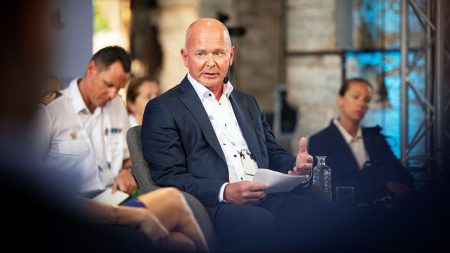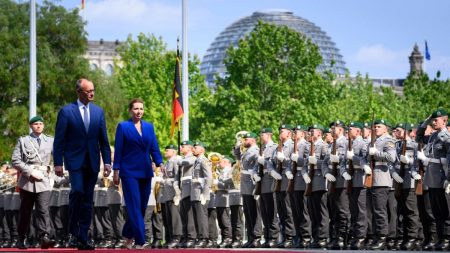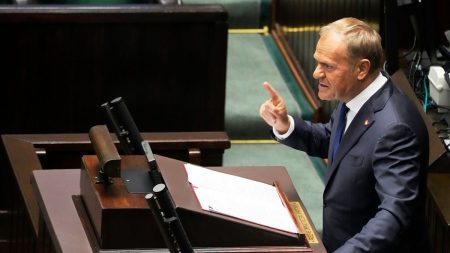The recent parliamentary elections in Romania have underscored a transformative and complex political landscape, characterized by the possible ascendancy of the leftist Social Democrat Party (PSD) along with notable gains for far-right populist factions. As vote counts near completion, the electorate has demonstrated a decisive inclination toward the PSD, which has garnered approximately 21% of votes, positioning it ahead of the right-wing Alliance for the Union of Romanians (AUR) at 18%. Other significant parties, such as the National Liberal Party (PNL) and the center-right Save Romania Union (USR), managed to secure 14.6% and 11.1%, respectively. Marcel Ciolacu, the PSD leader, has celebrated his party’s accomplishment while simultaneously voicing concern over the growing influence of far-right sentiments among Romanian voters, interpreting the results as a stark warning to the political establishment to remain vigilant and engaged with the electorate’s sentiments.
Negotiations for government coalitions are actively progressing, with pro-European and centrist forces asserting majority representation in the newly elected Parliament. The anticipated formation of a government reflects a carefully balanced approach to governance, particularly in light of these election outcomes, which highlight a visible schism in public opinion. Ciolacu’s assertion of the PSD’s responsibility as a “binding force” in society epitomizes the effort to cultivate unity amidst rising political division. The rise of extremist factions, which have earned seats in Parliament despite their modest overall vote percentages, suggests an undercurrent of discontent within the electorate. Notably, new leadership from the USR, represented by Elena Lasconi, emphasizes a commitment to fighting for democratic principles and the necessity of rejecting external influences, particularly from Russia.
The electoral climate has been further intensified by recent presidential races, where controversial figures like far-right populist Calin Georgescu achieved surprising electoral success. His emergence has set up a runoff against pro-European candidate Elena Lasconi, set for December 8, revealing a tumultuous clash within Romanian society between established pro-European ideals and a burgeoning nationalist rhetoric. Voter behavior indicates a critical moment for Romania, as the electorate navigates the implications of far-right ideologies juxtaposed against a backdrop of historical allegiance to European Union and NATO principles, reaffirmed by recent electoral outcomes.
Contributing to this polarizing atmosphere, anti-EU sentiment has found fertile ground within Romanian society, amplified by pervasive social media narratives during and following the COVID-19 pandemic. The Russian invasion of Ukraine has exacerbated these tensions, challenging Romania as one of NATO’s key eastern flank allies. In this context, the parliamentary elections have reflected a reactively nationalistic response from voters who may be disillusioned with both the local political establishment and the broader European framework. Analysts suggest the unexpected ascension of figures like Georgescu signals a protest vote, articulating public frustration toward economic hardships, including the highest inflation rates and budget deficits within the European Union.
Critics argue that the heightened support for far-right parties reveals an electorate grappling with a multitude of frustrations, seeking alternatives in the face of perceived government failings. Political analyst Adi Zabava has noted that the shifts in voter preference may serve as a direct message to political leaders rather than to European institutions, indicating a demand for serious reform. This mixed electoral response underscores the complexities faced by Romanian society as it confronts both internal and external pressures. Voter turnout figures indicate a populace engaged and concerned about the future, seeking to balance national pride with their alignment to broader European ideals.
In conclusion, the results of Romania’s parliamentary elections illustrate not only a victory for leftist forces but also a critical reminder of the underlying societal divide marked by the advancing far-right narrative. As negotiations for a coalition government take shape, the challenge remains for pro-European factions to acknowledge and address the concerns raised by the electorate regarding economic grievances and political dissatisfaction. The approaching presidential runoff will serve as a critical litmus test for Romania’s political direction, potentially reinforcing the importance of unity against rising populism. The national discourse must now focus on translating electoral sentiment into actionable government policy, striving to retain Romania’s commitment to EU values while responsibly addressing the growing complexities of the political landscape.










